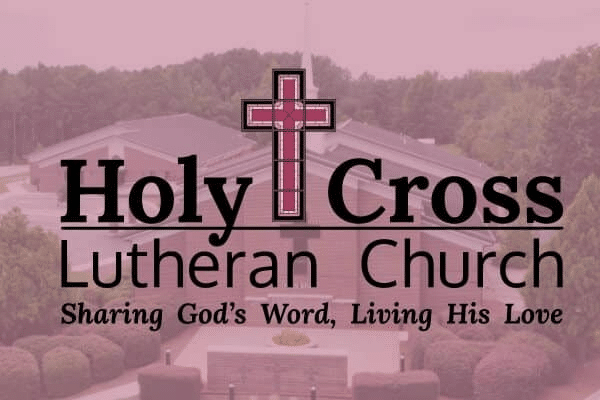
Traditional Worship 11/17/2024
Mark 13:1-13
November 17, 2024
I was delivering food for backpack buddies this week at one of our local elementary schools and as I approached the entrance and saw the metal detectors and locks on the front doors, that we see at many of our schools, I couldn’t help but wish we could go back to the “good old days.” Days when parents never had to worry about guns and knives in their children’s schools. Days when children often walked or rode their bike to school and parents never had to be concerned about their children being abducted. Days when children would leave the house after breakfast in the summer and would play outside all day with their friends, and not return home until dinner time. While something good like “Backpack Buddies” did not exist back then to help food needy children, those were days when there was a sense of peace, safety, and security. Most people did not have security alarms on their homes and churches were usually never locked.
I don’t know exactly when those “good old days” came to an end, but the fact is we live in a broken and sin filled world, and as Christians we are challenged to live as people of faith in such a world. Now, what exactly does that look like? Our Gospel lesson from Mark gives us a glimpse of life in a broken world, where things do not last.
The scene of this Gospel story takes place as Jesus walks out of this huge, magnificent temple in Jerusalem. The disciples, admiring the breathtaking size and beauty of this place say to Jesus, “Look, Teacher, what wonderful stones and what wonderful buildings!” And they were certainly correct in their observations. This temple was huge, and it was not just one building, but a complex of buildings. The temple, which had originally been built by King Solomon in the Old Testament, and was being rebuilt by King Herod at that time, had been the center of Jewish worship for 500 years. The walls towered over the city of Jerusalem, over 400 feet in one area, and they were constructed with huge stones – with the smallest ones weighing 2 to 3 tons and the large ones weighing 50 tons. Some of the stones were 40 feet long, 12 feet wide, and 8 feet tall. But this was more than just a magnificent building. The temple was a sign of God’s presence with the people of Israel.
But as they walk out of the place, Jesus rather nonchalantly says, “Do you see these great buildings? Not one stone here will be left on another, every one will be thrown down.” The disciples cannot imagine this happening, probably like many of us could never have imagined the twin towers of the World Trade Center ever coming down. So in their minds, the destruction of the temple could only mean one thing: the end of the world was upon them.
So, like us, the disciples try to figure out how to live in such uncertain and trying times. And they begin by asking Jesus to tell them the signs that will precede the end times. They believe that if they know the future they will then be able to prepare for it.
People in our world are constantly trying to figure out the future. In fact, there has never been a shortage of end of the world scenarios. Whether it is books or movies or spiritual leaders all trying to predict the end of the world, the one thing they all have in common is that it is going to be bad. As a result, some people will store up all kinds of food and supplies in preparation for this day. And yet, what I always find amazing with end of the world predictions is that the one thing that some people profess to know – the date – is the one thing that Jesus, the Savior of the world, says He does not know. Jesus said only His Heavenly Father knows that day.
So instead of giving the disciples signs of the end of the age, Jesus focuses on what are not signs of the end. In verse 8, Jesus calls false saviors, wars, earthquakes, famines, and suffering “birth pains,” not signs. In other words, these things are simply characteristic circumstances that we are living in between Jesus’ first coming to this world and His second. And although we can expect them to get more intense as we draw closer to His second coming – like birth contractions getting more intense for a woman before a baby is born – the existence of these things is simply part of the age in which we live. So wars, false saviors, earthquakes, famines, and persecutions, which were very common in Jesus’ day when He spoke these words – are not signs of the end. They are signs of the times – characteristics of life in between Christ’s first and second coming to this earth. In other words, what Jesus was telling them and what He tells us in this text is that we don’t need to know the future. Instead, we need to know our God who holds the future in His hands.
The future will certainly be filled with challenges and difficulties, just like it is today, and no matter how secure life may seem, no matter how many supplies we try to store up for the future, nothing is permanent except our relationship with God. So instead of storing things that will not last, why don’t we store things or strengthen things that will last, such as faith, hope, and love? Instead of storing things up for ourselves, why don’t we invest the things we have, such as our time, abilities, and money in people, who will last, who will live forever, if they know Jesus as their Savior.
The sheer size of the Jerusalem temple created the illusion of permanence. The square footage of the temple courts could hold as many as 10 football fields. That’s why, with its massive stones, people were so tempted to put their trust and security in the temple. Yet, a few decades later, that very temple was torn down stone by stone, leaving only a pile of rubble that remains to this day. What looked secure was in fact on the verge of total collapse.
We try to build secure lives for ourselves. We have health insurance and a retirement plan; we create goals for our lives and try to get ahead in life; we plan our weekly schedules on our phones and computers – all of which creates an illusion of security for us. But it’s a fragile illusion, because it doesn’t take much to shatter the illusion. All it takes is a biopsy that comes back positive for cancer, or a collapse in our economy, or a drunk driver crossing into the other lane, or a moment of passion or weakness. It really doesn’t take much to shatter our illusion of security, and having a lot of stuff that doesn’t last stored up for ourselves doesn’t really help in those moments. But faith in Jesus does help, because Jesus values us, He values people.
As Christians, we, of all people, should know that having faith in our God does not mean that He will make our lives easy or comfortable. After all, we might lose our family, our finances might collapse, our health might fail, our children might turn away from us, your spouse might leave you, or you could lose your job. But our faith does tell us that there is one sure thing in life and that is Jesus Christ, and His love for us, and His promise to always be with us.
Martin Luther, when asked in the early 1500s what he would do if he knew the world was going to end the next day said, “I would go out and plant a tree.” At first this might seem like a strange reply, but the point he was trying to make was that he would live his life of faith exactly the same way whether the end was 20 years away or tomorrow.
Only God knows when Jesus will return, so in the meantime, during these days between His first coming and His second coming, we have been given a mission. In the book of Matthew Jesus said, “Go, therefore, and make disciples of all nations, baptizing them in the name of the Father and of the Son and of the Holy Spirit, and teaching them to obey everything I have commanded you. And surely I will be with you always to the very end of the age.” Jesus treasures people and He says in His Word that “heaven will not be right until every one of you are there. So baptize and teach, so all may know of my love for them.” We summarize this task in the last thing we say at the end of our worship services each week: “Go in peace and serve the Lord. Sharing God’s Word and Living His Love.” The disciples learned to live their faith one day at a time. Let us follow their example and the example of countless Christians who have gone before us – trusting, loving, teaching, giving, and serving – never knowing if this is our last day or not, but being sure that no matter what, God is always with us.


